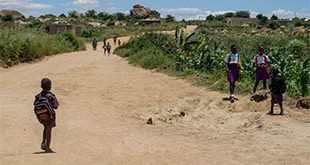
Banjul, Gambia | AFP |
Cliched rappers spend money on bling and cars, but Senegalese-American artist Akon is looking skywards to splash his cash, investing in solar power projects across Africa.
The rapper added The Gambia and Cape Verde to his Akon Lighting Africa initiative this weekend, a fund that already helps populations who struggle to connect to limited or absent national grids in 25 African countries.
The Gambian village of Sareh Pateh, population 4,000, turned on solar street lights for the first time on Sunday night, along with power for a mosque and a pharmacy.
“I want to leave a legacy,” Akon told AFP in the Gambian capital of Banjul. “Africans work harder in everything and they work harder to live and to sustain themselves.”
Akon, real name Aliaume Damala Badara Akon Thiam, spent part of his childhood in a Senegalese village without electricity before settling in the United States.
Best known for his singles “Locked Up” and “Smack That”, Akon has devoted more of his time in recent years to attending renewable energy conferences and visiting schools to provide adequate lighting to study.
In Cape Verde on Saturday the musician met with Economy Minister Jose Goncalves and said he considered the poor but stable island nation to be his next investment prospect.
He has identified investment opportunities and hopes to launch a mini-grid solar project when possible, he told journalists in the capital, Praia.
The musician’s visit comes alongside a wider push for solar power on the continent. Several African nations held a renewable energy summit in Guinea on Saturday to raise funds for 19 projects.
The African Renewable Energy Initiative, launched at the Paris COP21 summit in 2015, aims to bring large-scale projects to the continent.
Consumers are increasingly opting for their own off-grid solar solutions like Akon’s to power homes and small businesses, alongside larger but costly government investments.
According to International Energy Agency projections, almost one billion people in sub-Saharan Africa will gain access to the grid by 2040, but by that time 530 million will remain off-grid, almost comparable with the 600 million who cannot access power today.
 The Independent Uganda: You get the Truth we Pay the Price
The Independent Uganda: You get the Truth we Pay the Price



